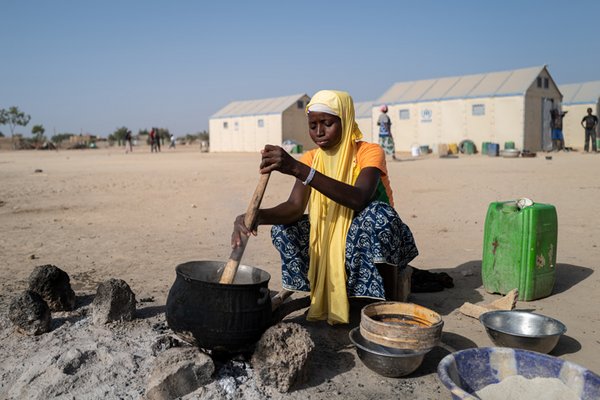 Read this article in French
Read this article in French- Share this article
- Subscribe to our newsletter
50 million people threatened by hunger in West Africa
According to the Economic Community of West African States (ECOWAS), the impact of the coronavirus pandemic could increase the number of people at risk of food insecurity and malnutrition from 17 million to 50 million people between June and August 2020, OXFAM International said in April 2020.
Food workers are struggling to continue their activities and see their livelihoods threatened. Measures must be taken to protect the most vulnerable and ensure food production, so that hunger and malnutrition are no longer a daily threat, demand NGOs in a joint statement.
They call on governments to control prices, to ensure the supply of food from family farms and the transport of goods across borders, but also to put social safety nets in place to help the most vulnerable.
Access to food has become very difficult in some countries
In the region’s main cities as well as in rural areas, despite governments efforts, many communities are today facing difficulties in accessing food markets, prices are increasing quickly and many basic commodities are becoming less available - the consequences of restrictive measures put in place, confinement or curfews, border closures and insecurity in certain areas.
The coronavirus crisis combined with insecurity is exacerbating the threats to market stability and hitting an already very fragile food situation with full force. In countries facing humanitarian crises, access to food has become very difficult. In Burkina-Faso or Niger, humanitarian aid is unable to reach and cover the food needs of thousands of displaced persons, and the emergency has become vital.
Pastoralists deeply affected by closure of regions or borders
With the agricultural season beginning, producers and farmers are already severely affected economically by the crisis and have difficulties in accessing quality seeds and fertilizers. 30.5 per cent of West Africa's economy is devoted to agriculture, which is the largest source of income and livelihood for 70-80 per cent of the population, and mainly women who are on the frontline.
Pastoralist communities, already hit hard by the impacts of climate change and insecurity, are also impacted, as they can no longer ensure the transhumance of livestock, which has become impossible by the closure of regions or borders. The situation risks increasing conflicts between herders and farmers.
(Oxfam/ile)
Read more on the Oxfam International website





Add a comment
Be the First to Comment